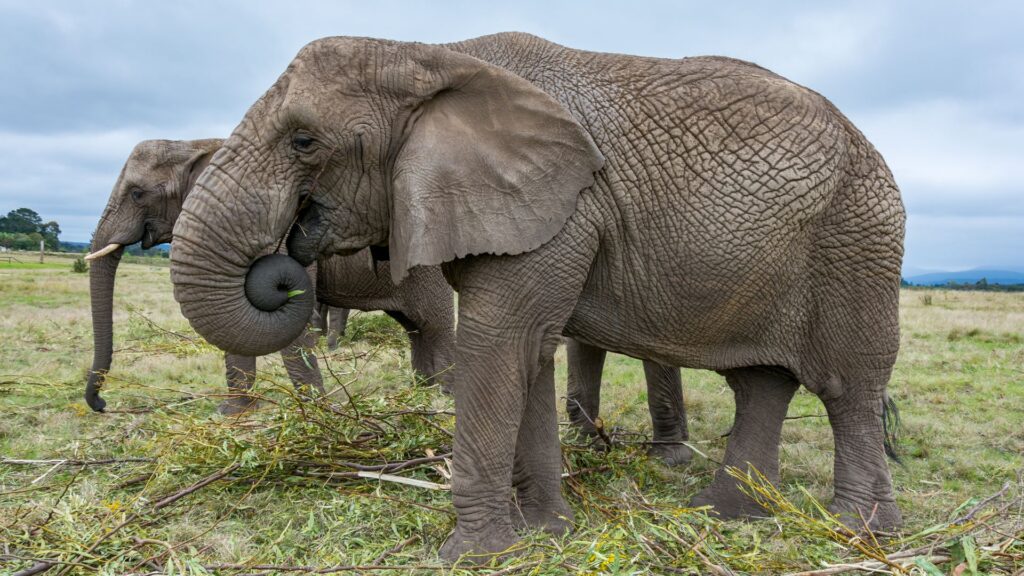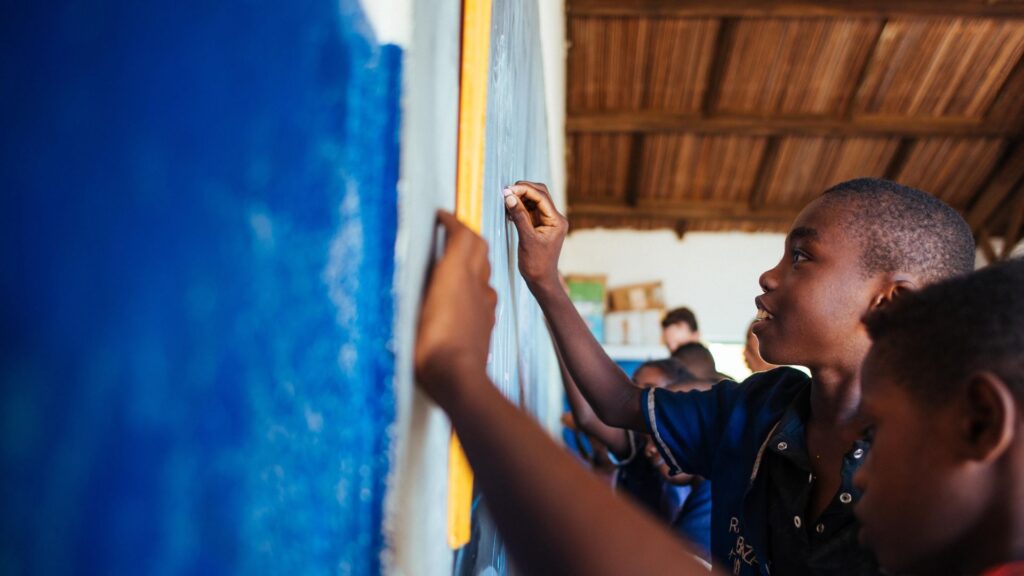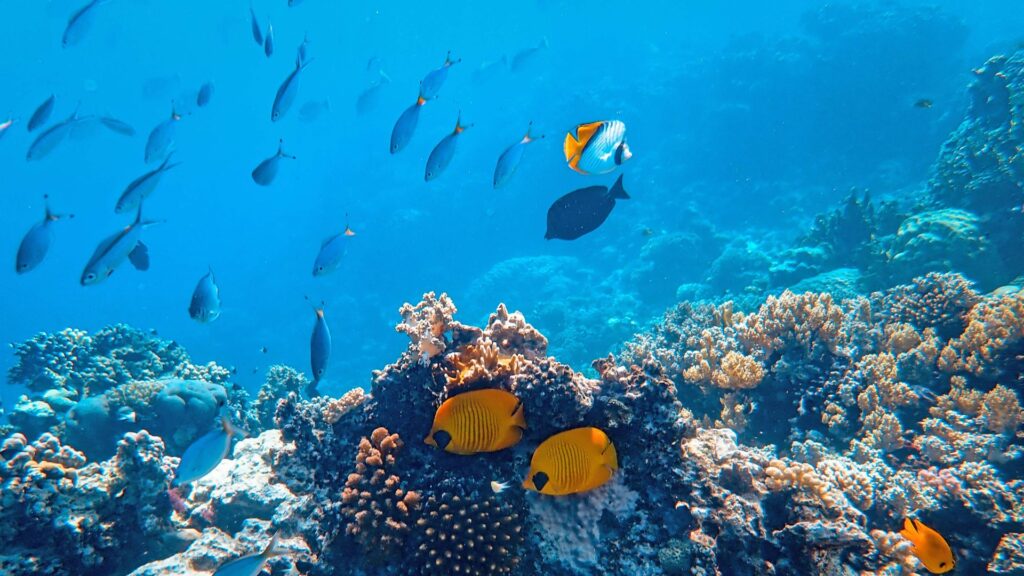Turtle Conservation
Madagascar
Protect endangered Hawksbill and Green Turtles in one of the world’s most breathtaking marine environments.
Overview
Duration
1-12 Weeks
Minimum Age
18+
Start Dates
1st & 3rd Monday of every month
Fees From
$619 USD
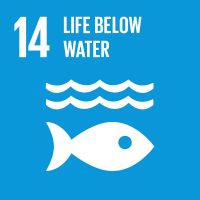
UN SDGs
The main UN Sustainability Goal of this program focuses on SDG 14: Life Below Water through habitat monitoring, species identification, and protection of turtle nesting and feeding grounds. Additional goals such as SDG 15: Life on Land, SDG 13: Climate Action and SDG 4: Quality Education are incorporated into this program.
What You'll Be Doing
Your focus will vary depending on the season. During the nesting season (October to March), work centres around monitoring nesting females, protecting vulnerable nests, and gathering data on hatchlings. In the dry season (April to September), efforts shift to in-water turtle identification and behaviour observation.
Key tasks may include:
- Beach patrols for nesting activity and hatchling emergence
- ID-based snorkelling surveys
- Monitoring seagrass health and signs of feeding
- Marine debris removal on key beaches
- Supporting environmental education and awareness efforts in local communities
All activities are designed to be ethical, non-invasive, and focused on contributing to broader conservation goals.
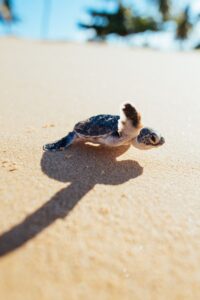
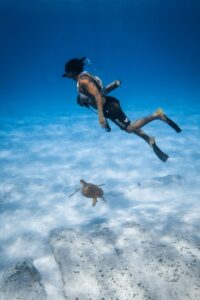
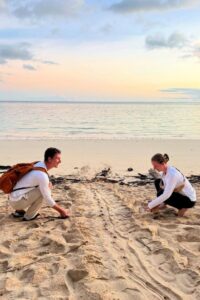
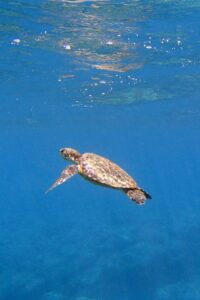
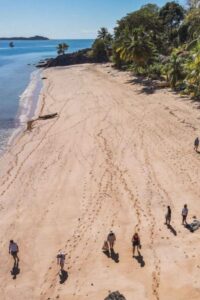
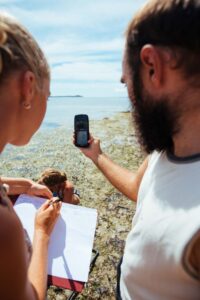
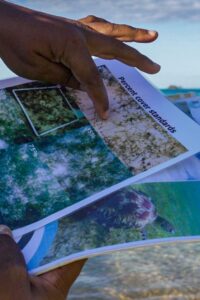
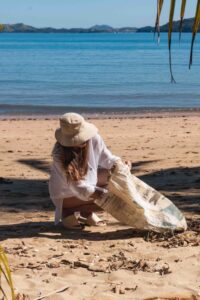
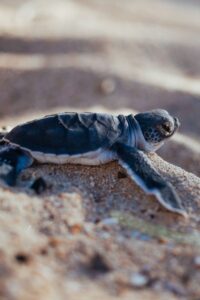
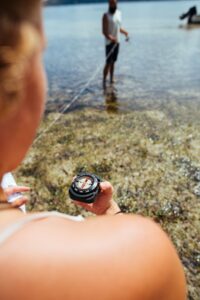
Why It Matters
Turtles in Madagascar face persistent threats, including habitat degradation, plastic pollution, and illegal harvesting. With limited data available on local populations, this program plays an important role in monitoring and protecting key nesting and feeding grounds. Volunteers help expand the reach of fieldwork and contribute to baseline data that can be shared with local stakeholders and conservation networks.
A Day in the Life
Nesting Season (Oct–Mar):
- Mornings: Morning track counts and data collection
- Afternoons: Data entry, local engagement, beach cleans
- Evenings: Night patrols for nesting activity
Dry Season (Apr–Sep):
- Mornings: Snorkel-based turtle surveys or habitat monitoring
- Afternoons: Beach cleans, education, data entry
- Evenings: Briefings, volunteer socials, and/or time to relax
Activities vary depending on tides, weather, and team priorities. Volunteers typically have evenings and weekends free.
Your Impact
By joining this program, you:
- Help monitor and protect endangered turtle populations
- Support marine research and data collection for conservation
- Assist with beach clean-ups and habitat protection
- Raise awareness of marine conservation in local communities
- Contribute to global understanding of turtle behaviours and threats
Where You'll Be Staying
The program is based on Nosy Komba, a volcanic island surrounded by seagrass beds and coral reefs that provide critical foraging habitat for green and hawksbill turtles. The beachfront volunteer camp sits directly across from a protected marine area, where turtles are regularly spotted grazing just offshore.
Most of your fieldwork takes place right in the bay, with snorkel-based surveys conducted from the dive deck. Additional monitoring may occur at remote beaches or reef sites, accessed by boat depending on tides and weather.
Accommodation & Meals
Base Camp
Volunteers sleep in wooden bungalows (4–6 people per room), with shared bathrooms (flush toilets, cold showers). There is a large main house where volunteer activities take place and a dive deck for relaxing and spotting turtles.
Solar energy powers the lighting, with limited charging, we recommend bringing a power bank. There’s no Wi-Fi on-site, but mobile data works with a local SIM, and Wi-Fi is available in the nearby village of Ampang (30-minute walk).
Secondary Camp
While working at the secondary camp on the mainland, you will stay in large rustic huts on the beach. Facilities are basic with bucket toilets and showers but the setting is peaceful, with ocean views and forest sounds.
As this is a remote village, no Wi-Fi is available and cellphone service is limited.
Meals
Three meals a day are prepared by the on-site cook using fresh, local ingredients. Meals are rice-based with vegetables and beans, and occasionally include fish, chicken, or zebu. Breakfasts may include fruit, bread, eggs, or crepes.
Vegetarian meals are available. Vegan options are limited, so additional snacks or supplements will be required.
Who Can Join
This program is open to anyone with an interest in conservation, turtles and the ocean. No previous experience is necessary, just a willingness to snorkel, learn, and support long-term turtle protection efforts.
Requirements:
- Age 18+
- Moderate fitness level
- Comfortable snorkelling
- Interest in turtle conservation
- Respect for local cultures and sustainable practices
Whether you’re a student, gap year traveller, or passionate ocean lover, if you’re ready to get involved and make a difference, this program is for you.
Program Pricing
Your fees directly support both the operations of our local team in Madagascar and the services we provide to ensure your experience is safe, well-structured, and impactful.
Outreach Overseas Offer
- Pre-departure support
- Volunteer information pack
- Assistance with trip logistics
- Emergency assistance
- Program quality assurance
- Certificate of participation
What's Included
- Airport Pick-Up (between 7am-7pm)
- Shared accommodation
- Three meals per day
- On-site orientation and training
- Daily program support
- Equipment (where possible)
What's Excluded
- Flights
- Travel & health insurance
- Visa fees
- Background check (if required)
- Personal spending money
- Excursions
All program fees exclude a one-time non-refundable $199 confirmation fee, which is payable upon acceptance into the program. Your remaining balance (program fees and any optional add-ons) is only due 60 days before your start date. This can be paid in instalments or as a lump sum.
| Duration | Program Fee |
|---|---|
| 1 Week | $420 |
| 2 Weeks | $695 |
| 3 Weeks | $970 |
| 4 Weeks | $1,245 |
| 5 Weeks | $1,520 |
| 6 Weeks | $1,795 |
| 7 Weeks | $2,070 |
| 8 Weeks | $2,345 |
| 9 Weeks | $2,620 |
| 10 Weeks | $2,895 |
| 11 Weeks | $3,170 |
| 12 Weeks | $3,445 |
Ready to Make a Real Impact?
Join us in Madagascar and be part of a dedicated team working to protect endangered sea turtles in their natural habitat. Whether you’re snorkelling alongside a green turtle or helping log vital conservation data, your efforts will directly support the long-term survival of these incredible species.
Choose your next step:
Apply Now to start your application and secure your spot in the program.
Enquire Here to get all the details you need from our team before you commit.
Good to Know Before You Go
What date should I arrive, and how do I get to the program location?
We recommend arriving in Nosy Be, Madagascar, on the Saturday or Sunday before your program start date (which is always a Monday). Once you land, our friendly local team will be waiting to greet you and assist with the short boat transfer to Nosy Komba, where the project base is located. Full arrival instructions will be sent in your pre-departure pack.
Please book your international flight to Fascene Airport (NOS) in Nosy Be. This is the closest airport to our program base and is well-connected along various flight routes. Most volunteers connect via Airlink from Johannesburg, Air Madagascar from Antananarivo, or Ethiopian Airlines via Addis Ababa.
We suggest booking your return flight for the Sunday after your final program week. The local will help coordinate the boat transfer back to Nosy Be in time for your flight, and can advise on reliable transport back to the airport. If you’d like to pre-plan your departing transport, you are welcome to select this add-on when submitting your application. If you’d prefer to explore Madagascar further before leaving, we’re happy to help you plan onward travel too!
What is the accommodation like and who will I be staying with?
You’ll stay in a rustic beachfront volunteer camp nestled against the hillside forest on Nosy Komba. Rooms are shared, gender-separated, and dorm-style with bunk beds. Facilities are basic but comfortable, including cold-water showers, flush toilets, and solar-powered lighting.
There’s no Wi-Fi at camp, but local SIM cards and data can be purchased in town and used for internet access.
Three meals a day are prepared by the local kitchen team, offering a mix of Malagasy and Western-style food.
You’ll share camp life with a diverse group of like-minded volunteers from around the world. Most volunteers are aged between 18 and 30, but we welcome volunteers of all ages (18+). We’ve had university students, career-breakers, solo travellers, and even couples join us. People join from all over the world, all with a common desire to make a difference and explore Madagascar in a meaningful way.
What does a typical volunteer week look like?
Volunteer weeks run Monday to Friday, with activities planned around tide and weather conditions. Mornings often begin early with in-water turtle surveys, where volunteers snorkel to identify and photograph turtles for our photo ID database.
In the afternoons, you might assist with data entry, turtle behaviour observations, or help raise awareness through beach monitoring and conservation education.
Evenings are free, with time to unwind, enjoy sunset swims, or join optional beach patrols.
Weekends are free to explore nearby islands, hike forest trails, snorkel coral reefs, or browse local markets in Nosy Be.
Are there any requirements to join this program?
This program is open to volunteers aged 18 and over. No previous experience is required! All you need is a positive attitude, a willingness to learn, and a passion for making a difference. Volunteers should be comfortable with outdoor work, snorkelling in open water, and be able to manage uneven terrain, stairs, and basic living conditions.
Is it safe to volunteer and travel in Madagascar?
Madagascar is generally a safe country to visit, especially in the Nosy Be region. We have on-site staff support 24/7 and follow strict protocols to keep volunteers safe. Nosy Komba is a peaceful island with a strong community spirit and low crime rates.
In case of emergencies, there is access to medical care on Nosy Be, just a short boat ride away.
You’ll be thoroughly briefed on safety and cultural awareness when you arrive, and we’re always here to support you throughout your stay.
What vaccinations or health precautions should I take?
While there are no mandatory vaccinations required to enter Madagascar or join the program, certain vaccinations (like Hepatitis A and Typhoid) and malaria prevention are recommended. Please come prepared with mosquito repellent and long clothing for the evenings.
We strongly advise speaking with a travel health clinic or your doctor well in advance of your trip to get personalised advice based on your medical history.
Can I join with a friend, family memeber or partner?
Absolutely! Friends, couples, or even small groups are welcome to apply together. Just let us know in your application, and we’ll do our best to place you in the same room and on the same project.
That said, many volunteers arrive solo and quickly build lasting friendships. The camp is a highly social, supportive environment.
How much does it cost and what's included?
Program fees start from $619 for 1 week, including all essential program costs and the one-time non-refundable $199 Outreach Overseas confirmation deposit. Outreach Overseas keeps costs low by partnering directly with grassroots organisations and operating as a small, purpose-driven team. Our pricing supports both volunteers and the project on the ground.
Included in your fees:
- Shared accommodation
- Three meals per day
- Airport pickup
- Full project training and supervision
- 24/7 in-country support
- Outreach Overseas pre-departure guidance
You’ll also receive a volunteer handbook and packing guide to help you prepare.
Will I have time to travel or explore during my stay?
Yes, and we highly recommend it! Madagascar is an incredible country to explore. From lemur-filled forests to white sand beaches, there’s so much to see. Go snorkelling in coral reefs, hike up volcanic peaks, visit lemur reserves, or take boat trips to paradise islands like Nosy Iranja. Our local team can offer tips and connect you with trusted tour guides if you’d like to explore over the weekends or travel further pre- or post-program.
When is the best time of year to join this program?
Madagascar’s northwest coast is warm year-round, but the dry season (April to November) offers the best weather and calmest seas, which is ideal for diving, snorkelling, and outdoor work.
If you’re keen on marine life, whale shark season (September–December) and turtle hatching season (December–March) are incredible times to visit.
No matter when you come, you’ll experience Madagascar’s breathtaking biodiversity and vibrant culture.
How to Apply
Step 1: Choose Your Program
Explore our programs and find the one that fits your passion and goals.
Step 2: Submit an Application
Complete our quick and easy online application form to start the process.
Step 3: Confirm Your Spot
Pay your $199 confirmation deposit upon your acceptance.
Step 4: Make an Impact
Travel to your destination, join your team, and begin your volunteer journey.
Explore Similar Volunteer Opportunities
Elephant Conservation & Research
- 1-12 Weeks
- 18+
- $674 USD
English Teaching
- 1-12 Weeks
- 18+
- $619 USD
Marine Conservation
- 4-12 Weeks
- 18+
- $2,274 USD
Stay in the Loop
Want to know when new destinations and programs launch? Sign up for updates and be the first to hear about our opportunities to travel with purpose.

